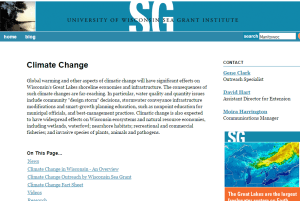
Storm Transposition to Promote Climate Resilience
Storm transposition is being applied in the Manitowoc River watershed to demonstrate why Wisconsin communities should invest in building resilience to climate change.
Scroll down to view posts

Storm transposition is being applied in the Manitowoc River watershed to demonstrate why Wisconsin communities should invest in building resilience to climate change.
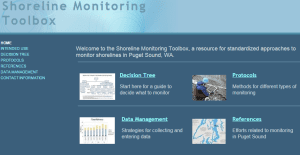
Washington Sea Grant, working with the Puget Sound Partnership and Puget Sound Ecosystem Monitoring Program Nearshore Work Group, has standardized approaches for monitoring and a “toolbox” of protocols and information. The toolbox emphasizes methods that are simple and affordable, and that can be used for monitoring restoration sites and evaluating status and trends.
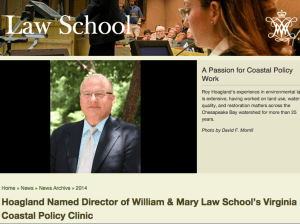
Virginia Sea Grant has a legal program now and they have been focusing on resiliency issues—conducting legal and policy research for local community clients on issues such as flood insurance, community rating systems, potential disclosure issues, potential local community liability risk associated with not taking adaptation steps. They have also provided analysis to the Governor’s Climate Commission that is currently underway and the General Assembly’s Secure Commonwealth Panel that finished up work last month.
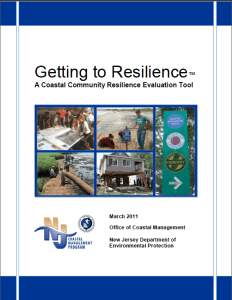
A survey instrument that helps a community characterize its resilience through the connectivity of the community's various planning documents.
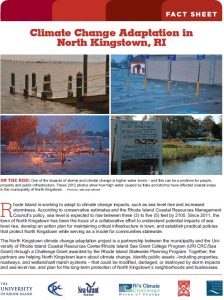
A model document for incorporating coastal hazards and climate change into state mandated Local Comprehensive Planning, together with maps that assess vulnerability, and recommendations based on lessons learned from other places for the community to adapt to rising seas.

We support an array of interdisciplinary research in the biological sciences, including topics such as coastal geomorphology mapping and assessments on the cumulative effects of sea level rise and increased wave heights.